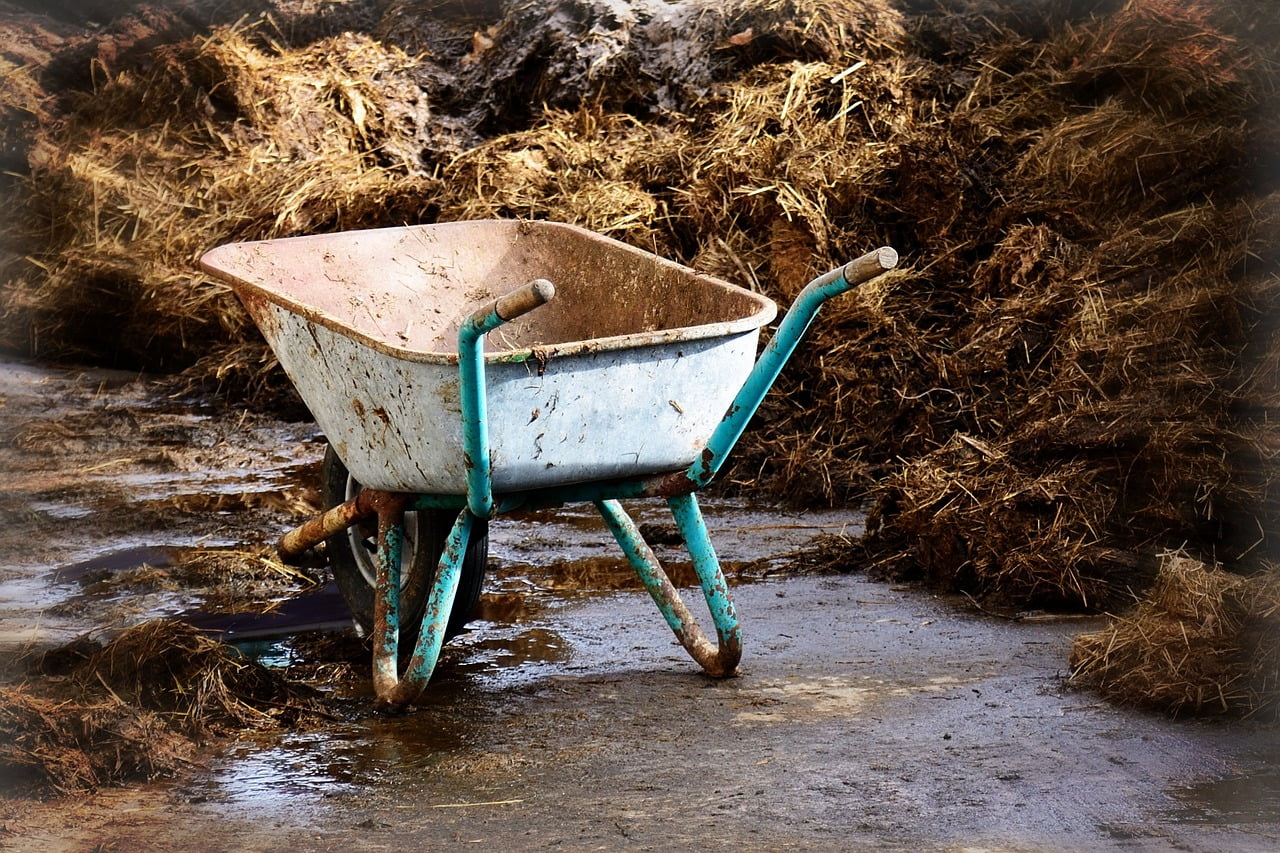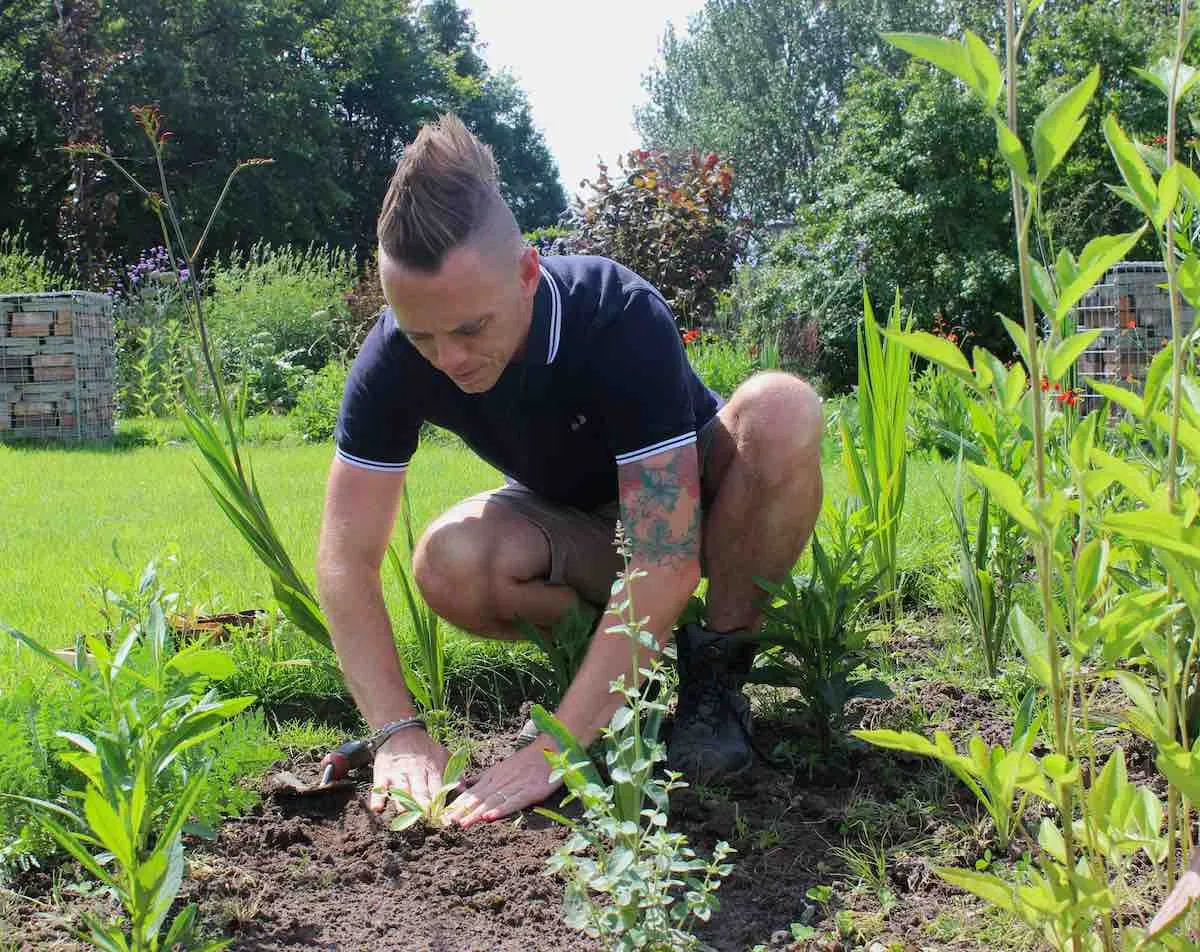Hi @blueskygardening
Great question! The quick answer is YES; of course, you can answer it!
Why do sites only specify adding soil improver in spring and summer? I think it's down to a misguided rule on horticulture courses that the best time to mulch your garden is either in spring (to feed the garden for this year) or Autumn(to feed and improve the soil for the following year slowly!).

The big rule with rotten mature as a mulch or soil improver is to make sure it's well rotted.
Why does manure need to be well-rotted for the garden?
Using manure as mulch in your garden can provide numerous benefits, including enriching the soil with nutrients, improving soil structure, and enhancing moisture retention. However, it is crucial to ensure that the manure is well-rotted (or composted) before application. Here’s why:
1. Nutrient Balance and Availability
- Reduced Nitrogen Burn - Fresh manure is high in nitrogen, which can be too potent for plants and cause "nitrogen burn." This can damage plant roots and foliage, leading to poor plant health or even death. Well-rotted manure has balanced nutrient levels that are safer for plants.
- Nutrient Availability - During the decomposition process, organic matter in manure is broken down into forms that are more easily absorbed by plants. Well-rotted manure provides a steady, slow-release source of nutrients, unlike fresh manure, which can release too quickly and in harmful amounts.
https://youtu.be/5BhGtCjT2TQ
2. Weed Seed Reduction
- Fresh manure often contains viable weed seeds, which can introduce unwanted weeds into your garden. The composting process heats up the manure, killing most weed seeds and reducing the likelihood of weed problems.
3. Pathogen Reduction
- Eliminating Pathogens from the manure. Fresh manure can contain harmful pathogens, such as E. coli, Salmonella, and parasites, which pose health risks to humans and animals. Composting manure at high temperatures helps kill these pathogens, making the manure safer to use in the garden.
4. Odour Control
- Fresh manure has a strong, unpleasant odour that can make your garden less enjoyable. Well-rotted manure has a more earthy smell and is less likely to offend your garden guests or neighbours!
5. Improved Soil Structure
- Soil Amendment - Well-rotted manure improves soil structure by adding organic matter. It enhances soil aeration, water retention, and drainage. Fresh manure, being more coarse and less decomposed, doesn’t provide the same benefits and can even lead to soil compaction in some cases.
https://youtu.be/SL8qCL_fGeM
6. Lower Ammonia Levels
- Ammonia Toxicity - Fresh manure contains high ammonia levels, which can be toxic to plants, causing root and leaf damage. As manure rots, ammonia levels decrease, making it safer for plants.
7. Consistent Application
- Ease of Use - Well-rotted manure is more consistent in texture and easier to spread evenly over the garden as mulch. With its variable composition, fresh manure can be harder to apply uniformly.
How to Ensure Manure is Well-Rotted
- Compost manure in a designated pile or bin. Turn the pile regularly to aerate it and maintain temperatures high enough to kill pathogens and weed seeds.
- Give it time. Allow the manure to compost for at least six months to a year. The time required can vary based on the type of manure and composting conditions.
- Observation of thew manure. Well-rotted manure should be dark, crumbly, and have an earthy smell, indicating it has fully decomposed.
So get your manure on your beds now and watch your garden plants flourish, not to mention your soil health.
I hope that helps!
Lee Garden Ninja
Hi @blueskygardening
Great question! The quick answer is YES; of course, you can answer it!
Why do sites only specify adding soil improver in spring and summer? I think it's down to a misguided rule on horticulture courses that the best time to mulch your garden is either in spring (to feed the garden for this year) or Autumn(to feed and improve the soil for the following year slowly!).

The big rule with rotten mature as a mulch or soil improver is to make sure it's well rotted.
Why does manure need to be well-rotted for the garden?
Using manure as mulch in your garden can provide numerous benefits, including enriching the soil with nutrients, improving soil structure, and enhancing moisture retention. However, it is crucial to ensure that the manure is well-rotted (or composted) before application. Here’s why:
1. Nutrient Balance and Availability
- Reduced Nitrogen Burn - Fresh manure is high in nitrogen, which can be too potent for plants and cause "nitrogen burn." This can damage plant roots and foliage, leading to poor plant health or even death. Well-rotted manure has balanced nutrient levels that are safer for plants.
- Nutrient Availability - During the decomposition process, organic matter in manure is broken down into forms that are more easily absorbed by plants. Well-rotted manure provides a steady, slow-release source of nutrients, unlike fresh manure, which can release too quickly and in harmful amounts.
2. Weed Seed Reduction
- Fresh manure often contains viable weed seeds, which can introduce unwanted weeds into your garden. The composting process heats up the manure, killing most weed seeds and reducing the likelihood of weed problems.
3. Pathogen Reduction
- Eliminating Pathogens from the manure. Fresh manure can contain harmful pathogens, such as E. coli, Salmonella, and parasites, which pose health risks to humans and animals. Composting manure at high temperatures helps kill these pathogens, making the manure safer to use in the garden.
4. Odour Control
- Fresh manure has a strong, unpleasant odour that can make your garden less enjoyable. Well-rotted manure has a more earthy smell and is less likely to offend your garden guests or neighbours!
5. Improved Soil Structure
- Soil Amendment - Well-rotted manure improves soil structure by adding organic matter. It enhances soil aeration, water retention, and drainage. Fresh manure, being more coarse and less decomposed, doesn’t provide the same benefits and can even lead to soil compaction in some cases.
6. Lower Ammonia Levels
- Ammonia Toxicity - Fresh manure contains high ammonia levels, which can be toxic to plants, causing root and leaf damage. As manure rots, ammonia levels decrease, making it safer for plants.
7. Consistent Application
- Ease of Use - Well-rotted manure is more consistent in texture and easier to spread evenly over the garden as mulch. With its variable composition, fresh manure can be harder to apply uniformly.
How to Ensure Manure is Well-Rotted
- Compost manure in a designated pile or bin. Turn the pile regularly to aerate it and maintain temperatures high enough to kill pathogens and weed seeds.
- Give it time. Allow the manure to compost for at least six months to a year. The time required can vary based on the type of manure and composting conditions.
- Observation of thew manure. Well-rotted manure should be dark, crumbly, and have an earthy smell, indicating it has fully decomposed.
So get your manure on your beds now and watch your garden plants flourish, not to mention your soil health.
I hope that helps!
Lee Garden Ninja
 Lee Burkhill: Award Winning Designer & BBC 1's Garden Rescue Presenters Official Blog
Lee Burkhill: Award Winning Designer & BBC 1's Garden Rescue Presenters Official Blog



